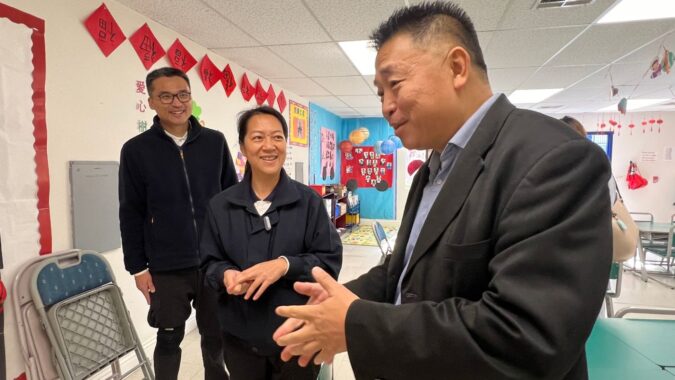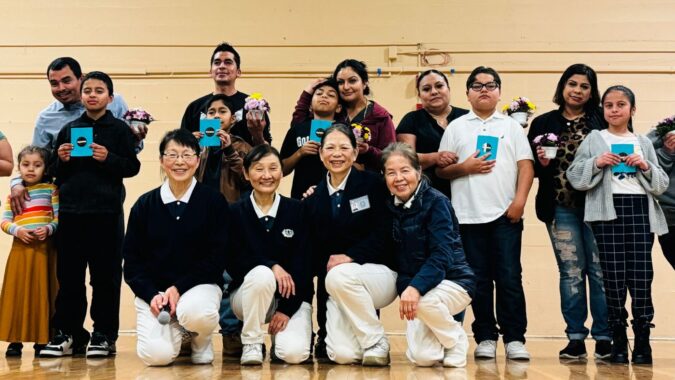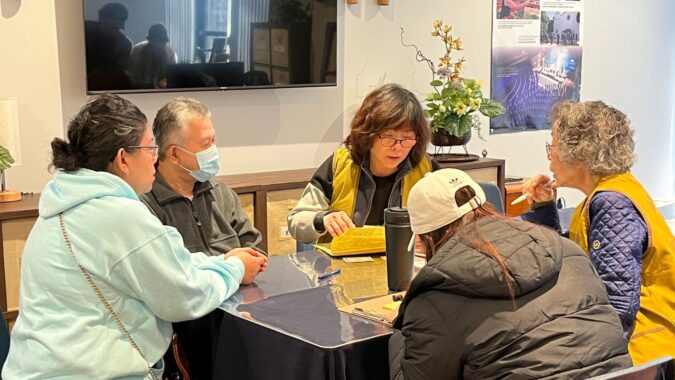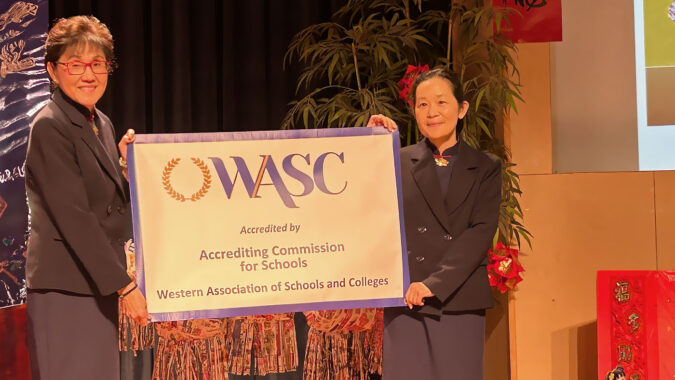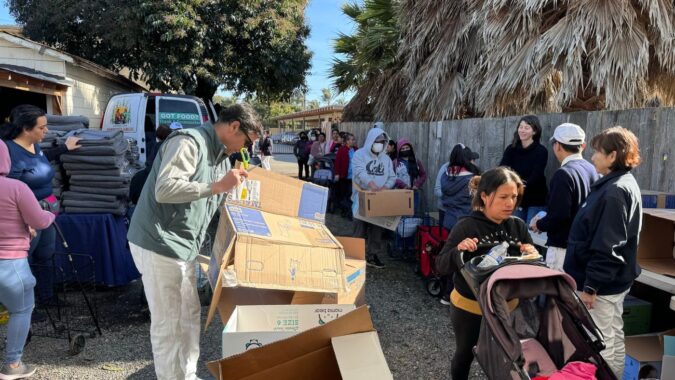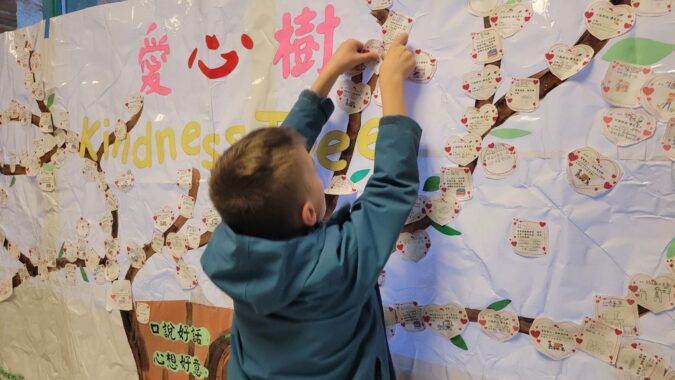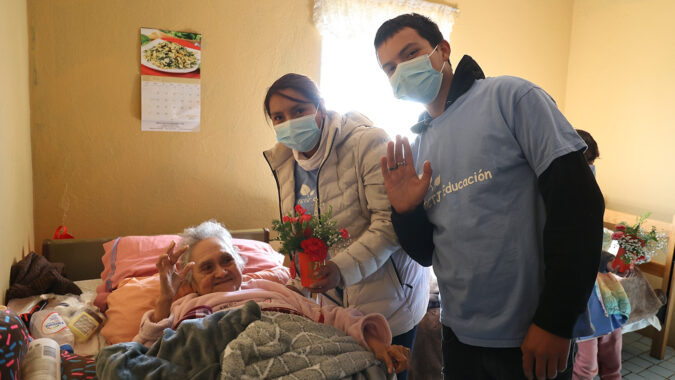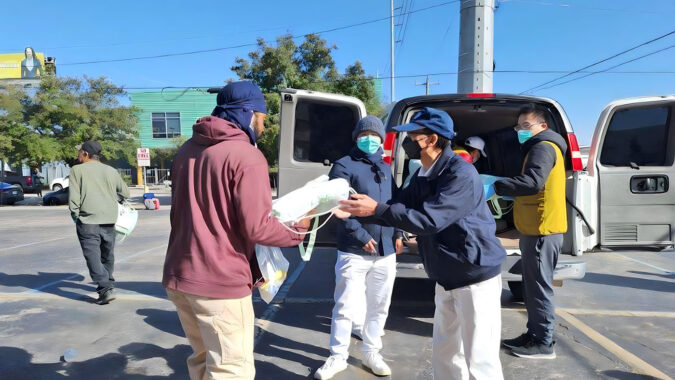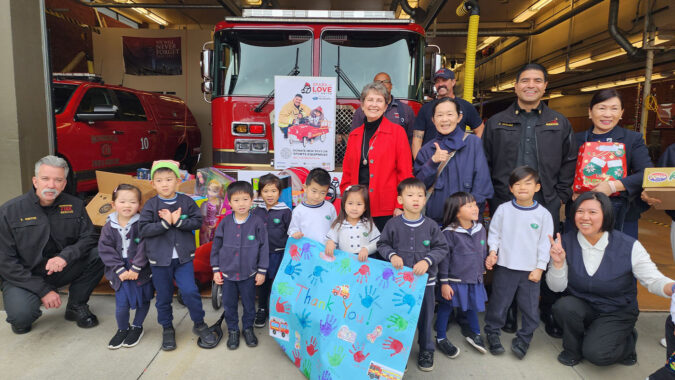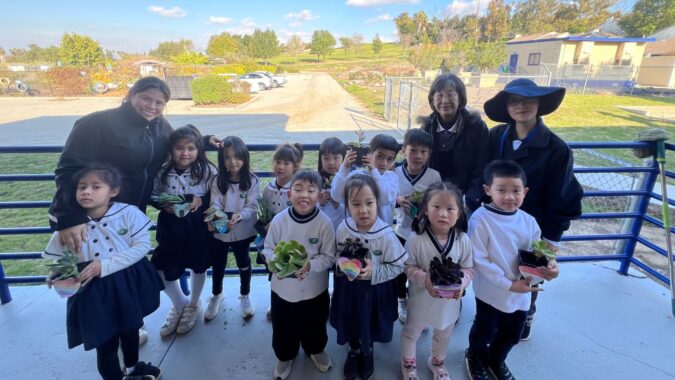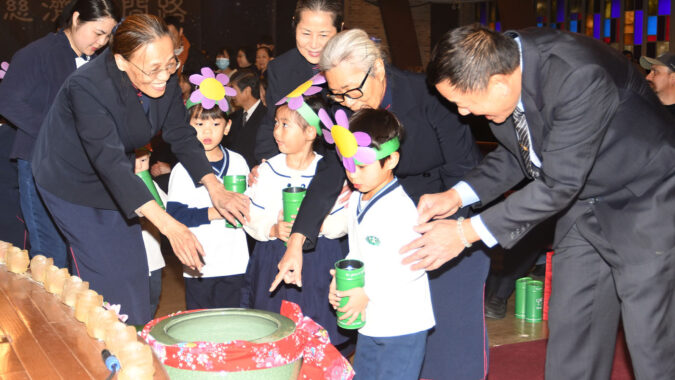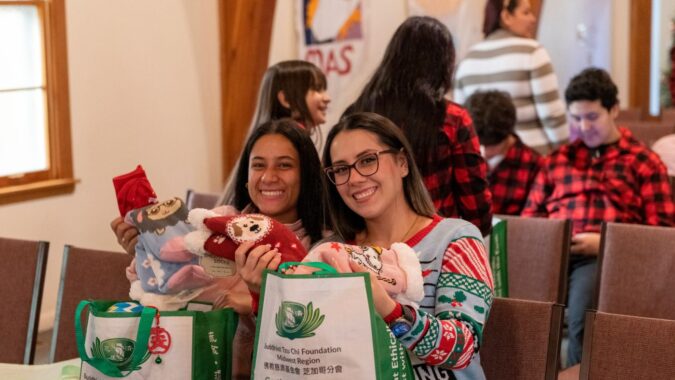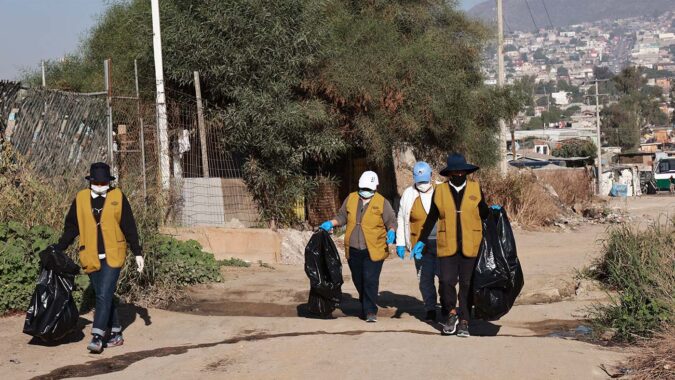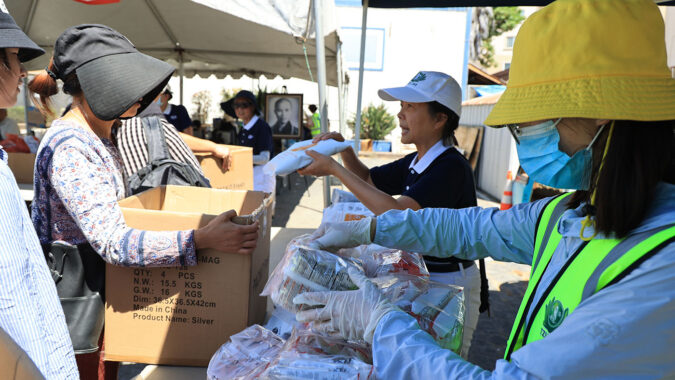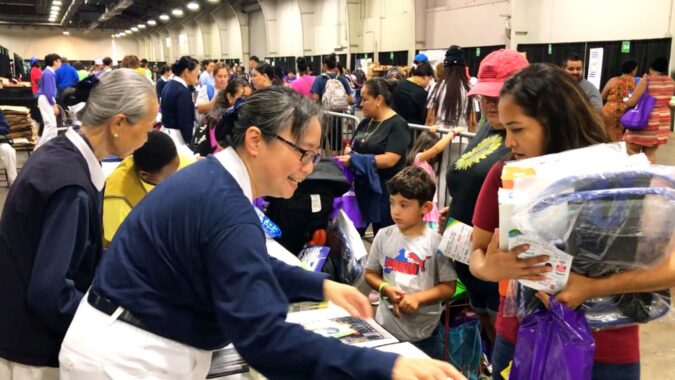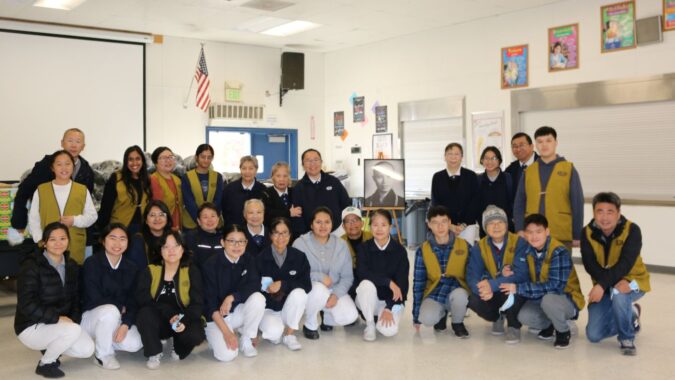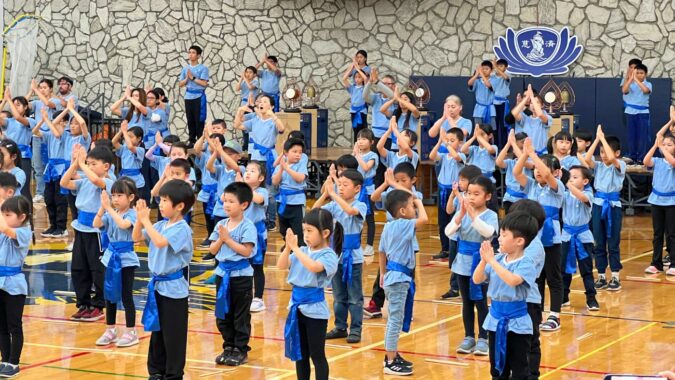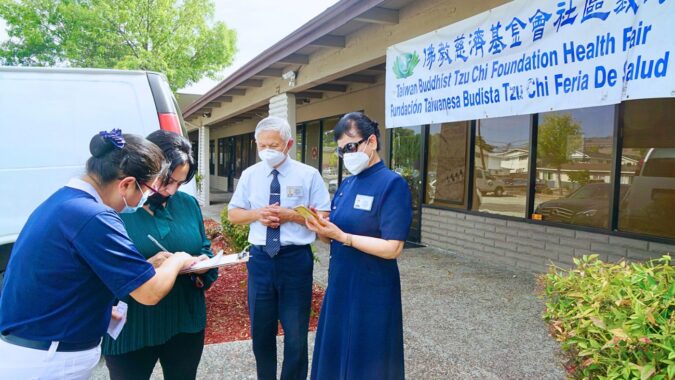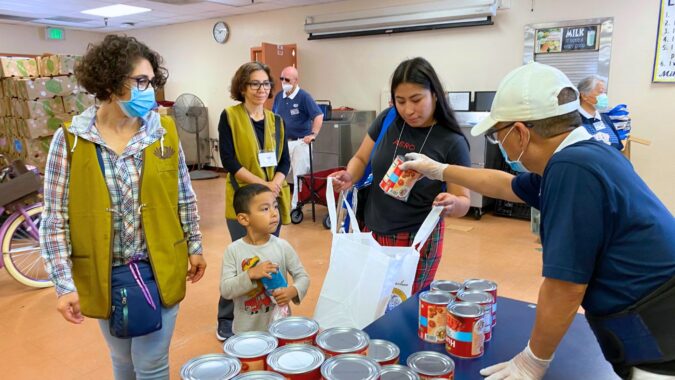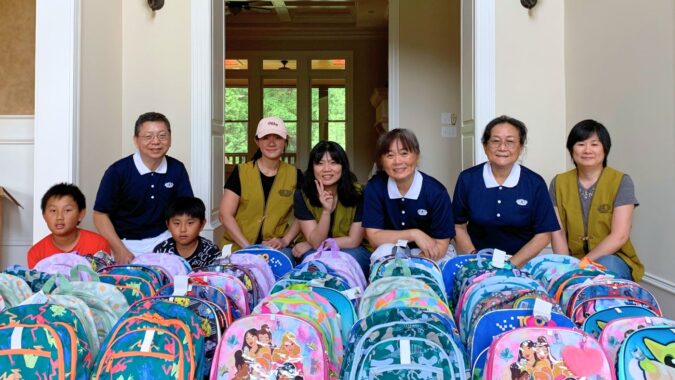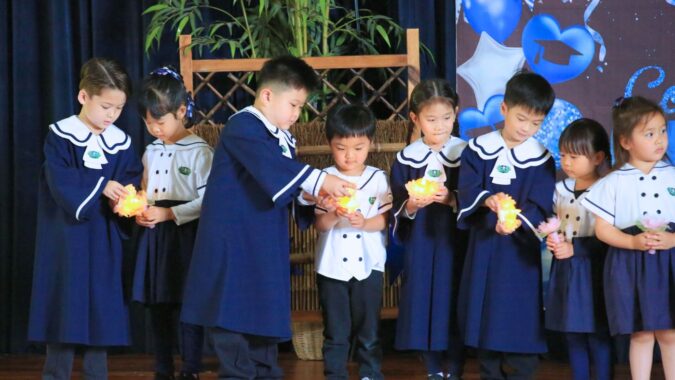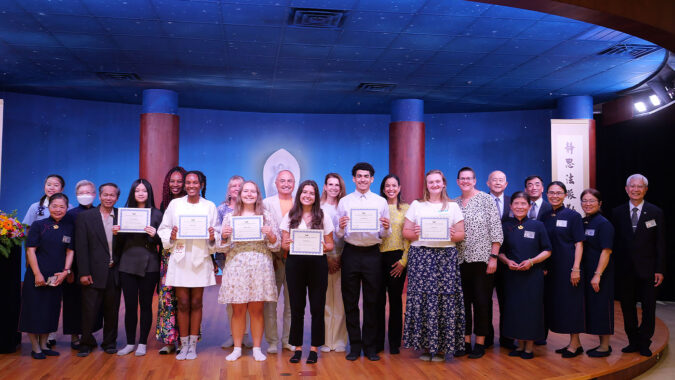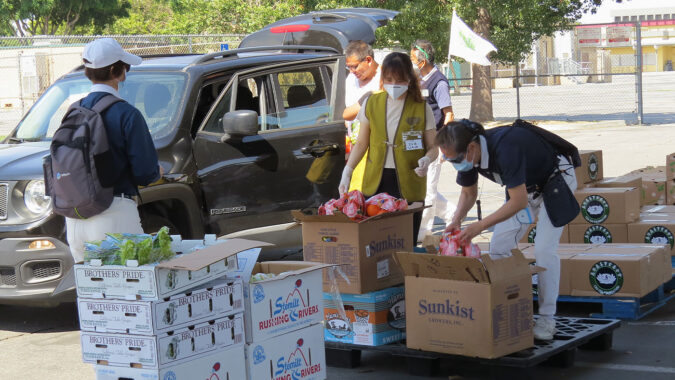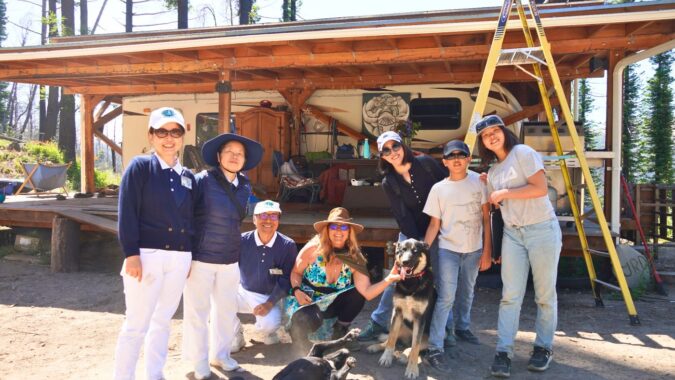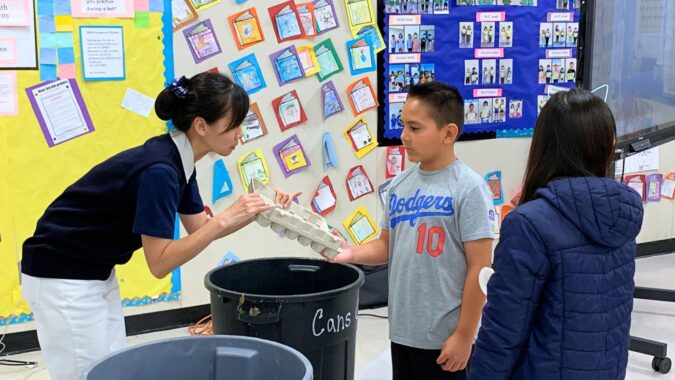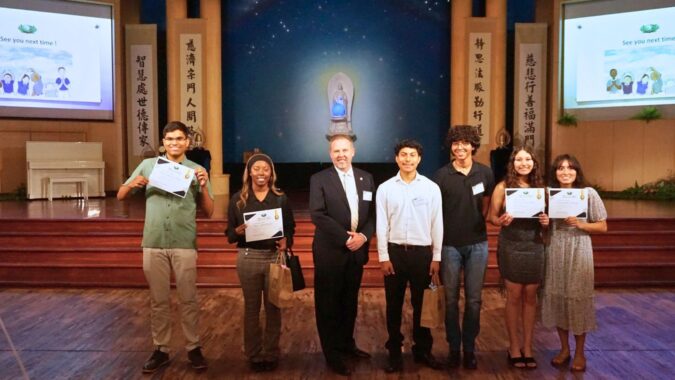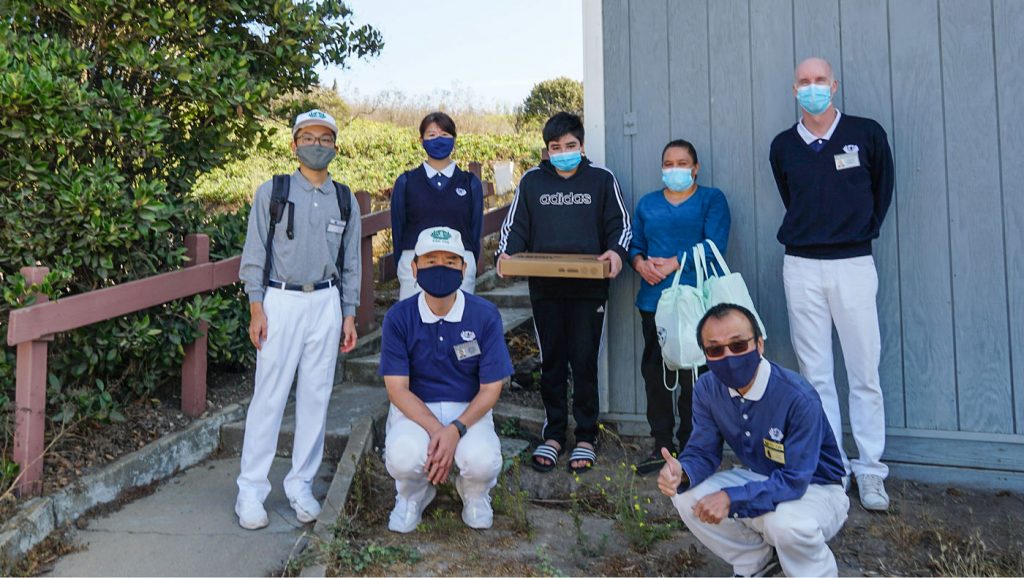
Written by Christina Chang
Translated by Diana Chang
Edited by Ida Eva Zielinska
For Christopher Yang, an 18-year-old student and Tzu Chi volunteer who grew up in Northern California, life is full of all the conveniences brought by technology. But many underprivileged teenagers don’t have such equipment in their homes, especially digital devices, with all the advantages and access to information and opportunities for learning that they bring.
After volunteering on a Tzu Chi mission giving laptops to students from migrant farmworker families in Silicon Valley, Christopher gained a more visceral understanding of the challenges disadvantaged students may face as they pursue their education.
These students who received laptop computers have the same learning ability and the same desire to learn as we do. They just need a computer.
Christopher Yang, Tzu Chi Volunteer
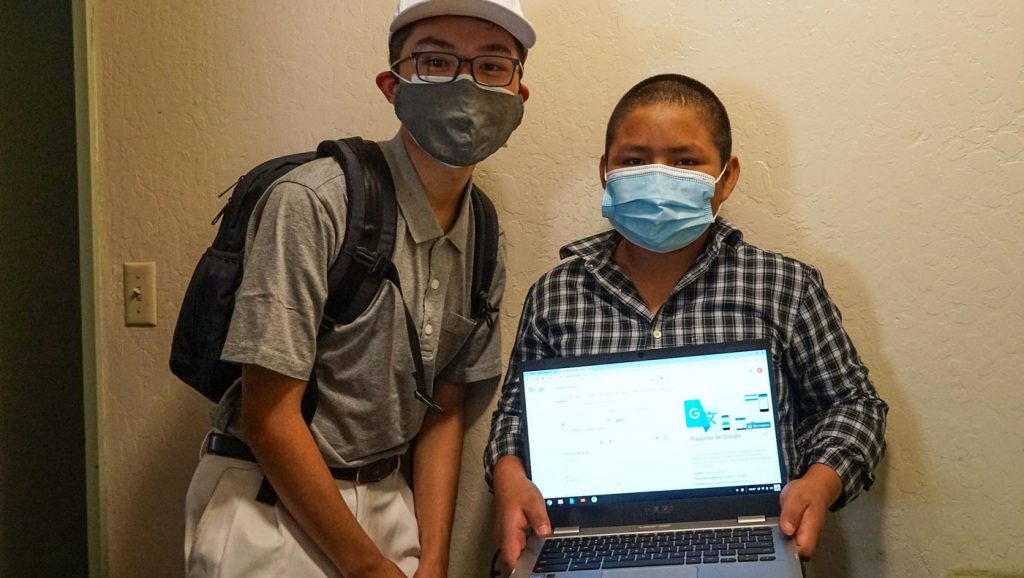
The COVID-19 pandemic struck the world in 2020, and schools across Northern California responded to government directives by altering how they provide teaching to their students. By August, as the summer break passed and the new academic year began, most students were studying remotely from home. Unfortunately, remote learning is impossible for many students from migrant farmworker families.
These largely undocumented and low-income earning households simply can’t afford to buy a computer for their children, resulting in a considerable obstacle to overcome as schools implemented distance education methods. Their needs led to the launch of this Tzu Chi USA mission. Through a referral from Santa Clara County social workers, Tzu Chi USA’s Northwest Region volunteers set out to donate laptops to students from migrant families in Silicon Valley’s underprivileged communities.
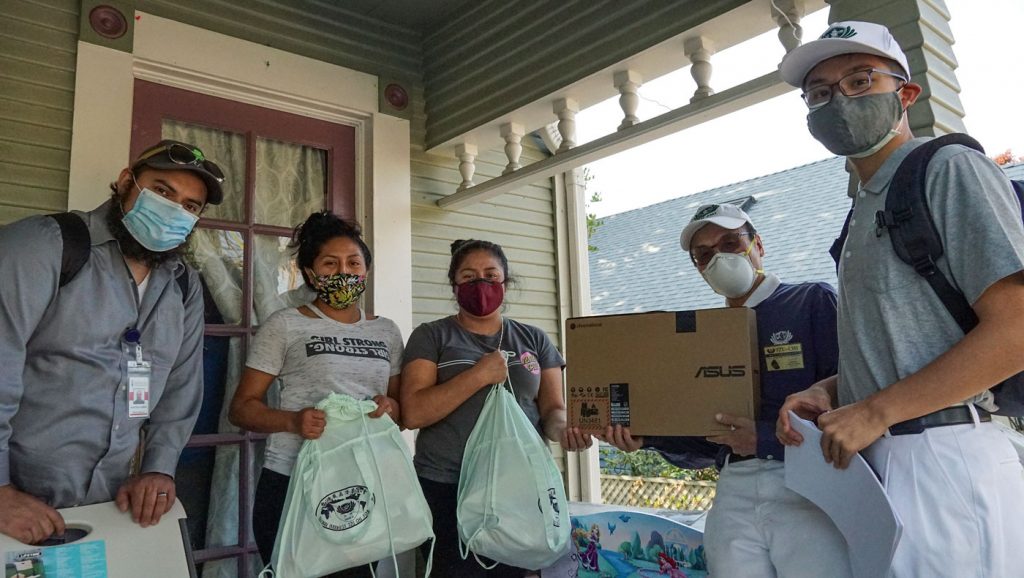
On top of providing the computers for students, the team also gave out some food staples, personal protective equipment, and other supplies to further assist the entire family. The packages include Tzu Chi’s noodles and Jing Si Instant Rice, cloth masks, cleaning products, and hand sanitizer.
Tzu Chi volunteer Chijen Huang, who was part of the team, explained the circumstances and challenges students from farmworker families in California often face. The majority are of Hispanic origin; their parents came to the United States from Mexico or other Latin American countries. Even after years in the U.S., some of these parents only possess a rudimentary command of English, and their job prospects and income capacity remain limited.
Since the adults in the families eke out a living as low-income agricultural harvesters, often seasonal, purchasing a computer for their children is difficult, if not impossible. How does this impact the children, who are also the family’s hope for a better future? Considerably.
For instance, one student who had started his first year of college still doesn’t have a computer. He goes to a print and copy service shop and pays by the hour to use a computer to study and complete his homework online. Elementary and high school students also encounter constraints. While they can borrow computers from the district, the machines’ quality isn’t guaranteed, and they must return the equipment during winter and summer breaks.
For the students who received laptops thanks to this Tzu Chi USA mission launched in collaboration with the County of Santa Clara Social Services Agency, the free computers made a world of difference in their ability to study and life prospects going forward.
He Used to Be Shy
Ludys is 14 years old, but he’s only in Grade 6, instead of Grade 9, as would be the norm for a boy his age. He appeared shy when Tzu Chi volunteers came to deliver a laptop computer to his home; since he kept hiding in the only other room of the house, embarrassed to come out.
Due to his father’s immigration status, the jobs he finds are unstable, and as a result, the family is often on the move. Consequently, Ludys has changed schools repeatedly, so even if he’s been in the U.S. for a long time, he still can’t speak English fluently or keep up with students his age.
Nonetheless, one could say Ludys is the luckiest one in the family. His father just lost his current farmworker job and is worried about finding the next gig. His mother and two older brothers have never attended school at all and only speak Spanish. The eldest brother is in his early 20s, and he and his young wife already have an 18-month-old baby. All the adults must work to support this family of seven, and only Ludys has the opportunity to go to school.
When Ludys saw the computer the volunteers were giving him, the teenager’s eyes sparkled with joy. After Christopher Yang helped set up the laptop, Ludys’ shy demeanor vanished as he started conversing with Christopher with the help of Google Translate from Spanish to English. When Ludys chats in Spanish, he’s energetic and charming and knows quite a lot; his inability to fully express his thoughts in English had initially made him seem shy.
Enthusiastically accepting the computer, Ludys thanked the Tzu Chi volunteers for the precious gift. Now he can explore the world wide web at any time and no matter where he is. It turns out that he likes all kinds of sports. With this digital device, he can not only study and help his family access information that may benefit them but also follow his passion and search for news about his favorite sports teams.
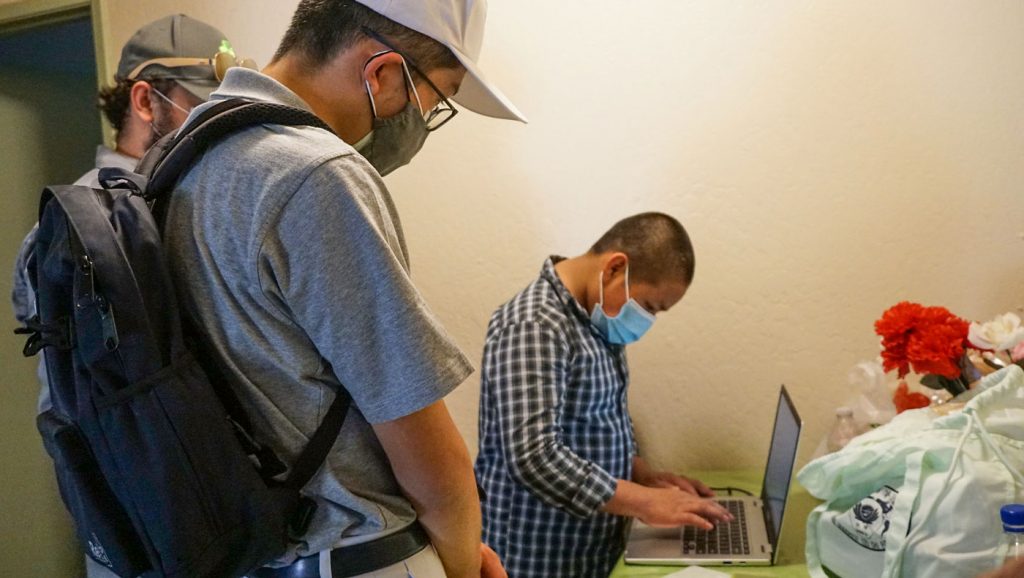
I Like Math Too!
Diego just started Grade 7 after the summer break. He lives with his parents in a rented cabin near a farm, in a small town outside Santa Cruz, in Silicon Valley. Due to the town’s remote location and weak internet signal, the school district needs to provide a WiFi hotspot for its distance education classes during the pandemic.
However, Diego had additional remote learning issues to contend with as the computer supplied to him by the school district had a malfunctioned camera. It’s no surprise then that he was supremely delighted when he received a laptop computer from Tzu Chi.
Diego’s parents came to the United States 16 years ago, moving here from a small village in Mexico to search for better opportunities. And yet, the American Dream wasn’t necessarily what they hoped it would be, as today, they toil in the fields all day harvesting crops while barely earning enough to make ends meet. Even with their farm employer partially subsidizing their rent, survival is a constant struggle.
These hard-working parents didn’t have the opportunity to learn English in all this time either. But, thankfully, their son Deigo, born and raised in the United States, speaks English fluently, the language perfectly natural for him, with the benefits of this enormous for his future. And now, thanks to this new computer, Diego’s classes can proceed flawlessly, and as the first in the family to pursue and obtain an education, he will indeed have better prospects than his parents.
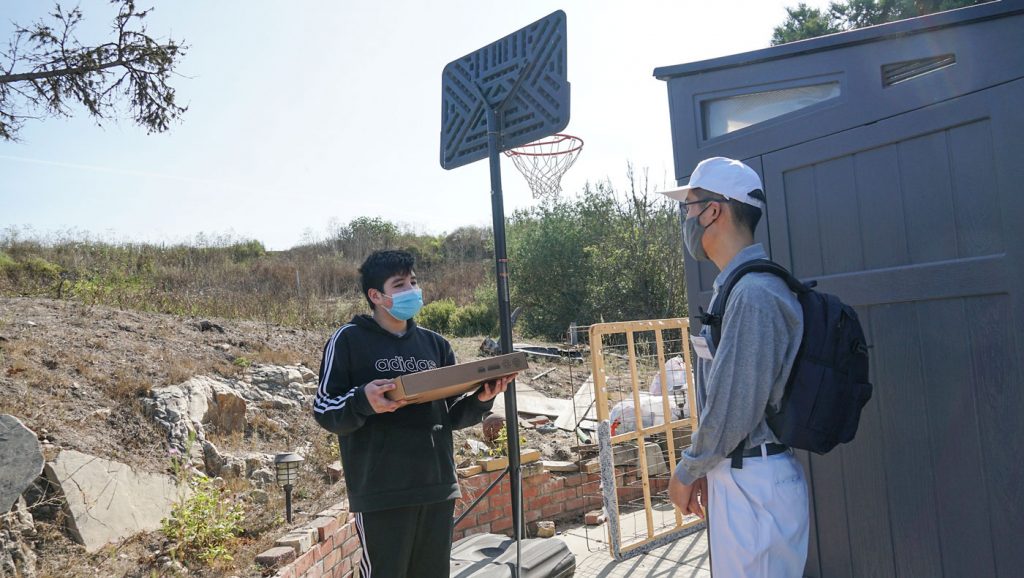
When Christopher Yang and Diego talked about school, Diego said he’s interested in math. It turns out that Christopher is as well, as he had just graduated from the University of California, Berkeley, and was about to begin a Ph.D. program in physics.
Christopher, who is just a few years older than Diego, encouraged the enthusiastic student’s passion, sharing that “Math is the foundation of science, it can help us understand more about science.” With a personal computer, Diego can now go online at any time and find more information about math and science, deepening his knowledge through these explorations.
Diego, and all the other students receiving laptops through this mission, will also now be able to reconnect with classmates and friends online, renewing the camaraderie that’s been missing as everyone is studying alone at home. This virtual companionship can further motivate the students and provide additional support for their studies.
A Devoted Father and Son
Luis is only 14 but is sharing the bleak lifestyle of adult fieldworkers, like his father, Jorge. The two live on a strawberry farm in a horse barn converted to living quarters for single, male workers. There are no actual rooms in the barn housing, only basic beds placed between wood partitions subdividing the shared space. A public restroom and shared kitchen, which are available right outside, complete the spartan accommodations. Luis is the only kid living here.
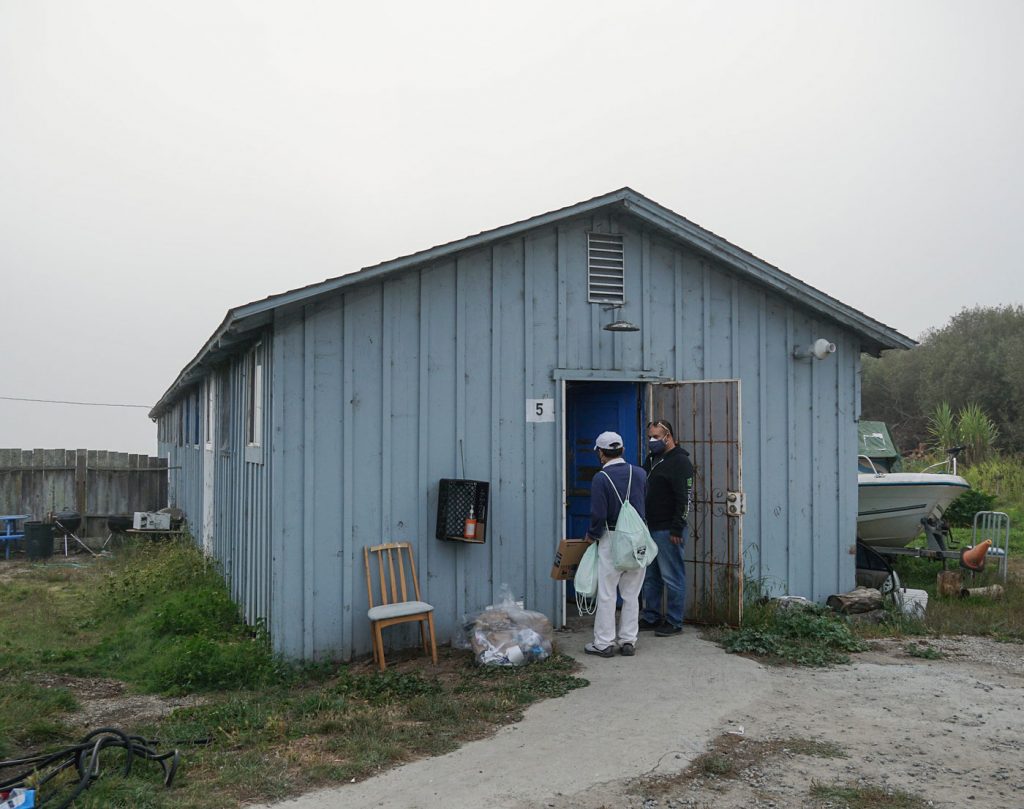
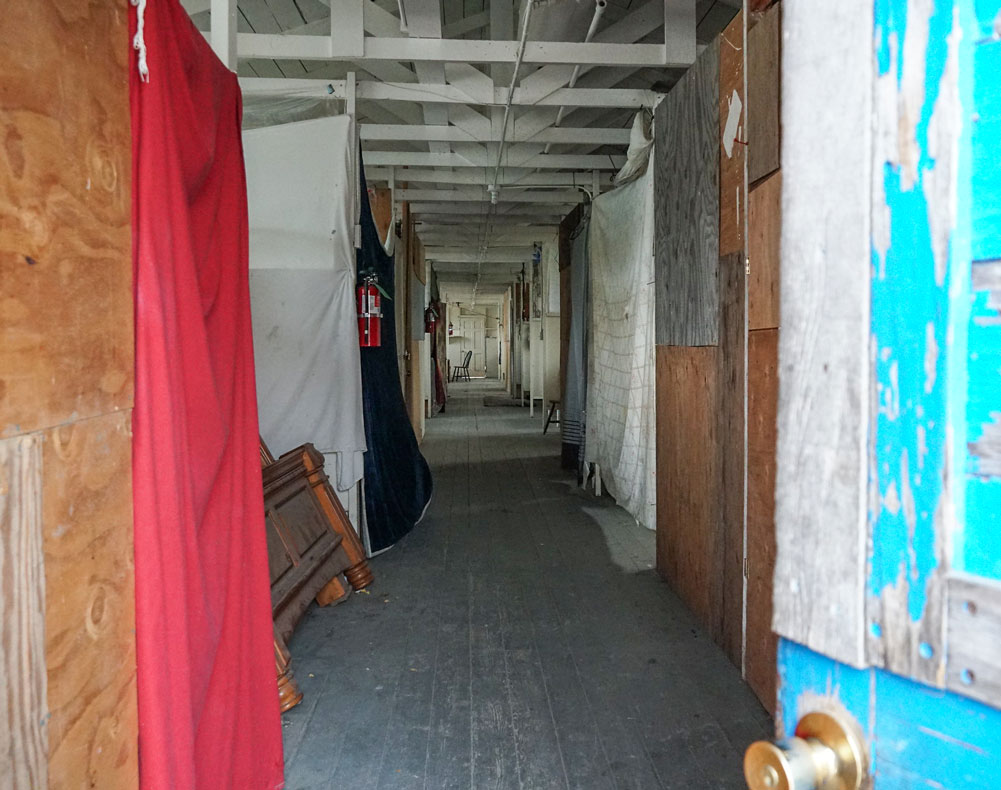
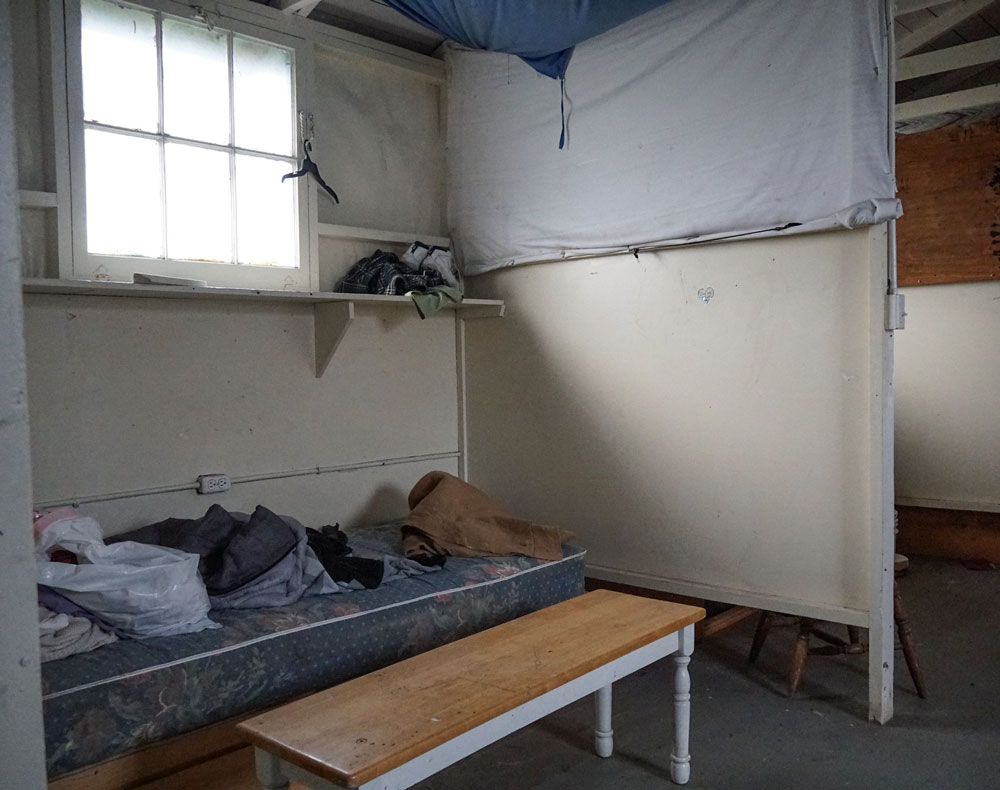
As is the case for so many of the kids receiving computers from Tzu Chi USA as part of this mission, Luis is below his age-appropriate grade level and only in Grade 7. And it’s no surprise given the challenges the father and son have overcome and still face.
Jorge and Luis came to the U.S. from Guatemala more than two years ago now. They once lived near Davenport, Santa Cruz, on Swanton Road in Silicon Valley. Along this long mountain trail, only five houses remained after the CZU Lightning Complex wildfires blazed through Northern California, as all the rest burned, including the home Jorge and Luis had shared.
The father and son currently don’t have a car and must rely on their roommates for free rides to work or school. Due to the pandemic and wildfires in the region, Jorge’s working hours also decreased in 2020. He’s trying to find a new or additional job to augment his income since he not only has to provide for himself and Luis but an extended family back home, too.
Jorge explained that he has six children but only brought Luis with him when he came here to work to support the family. In Guatemala, his wife has to take care of his elderly parents and the five other kids. His voice then cracked with emotion as he relayed sadly, “One of my daughters passed away last year.”
The devoted father continued the family’s story, saying, “One of my sons couldn’t go to school after graduating elementary because I’m incapable of paying for the tuition.” What worries him immensely as well was that he heard his father’s health is failing, and they fear the worst, saying, “Luis is worried about his Grandpa, and I’m afraid I won’t be able to see my Dad.”
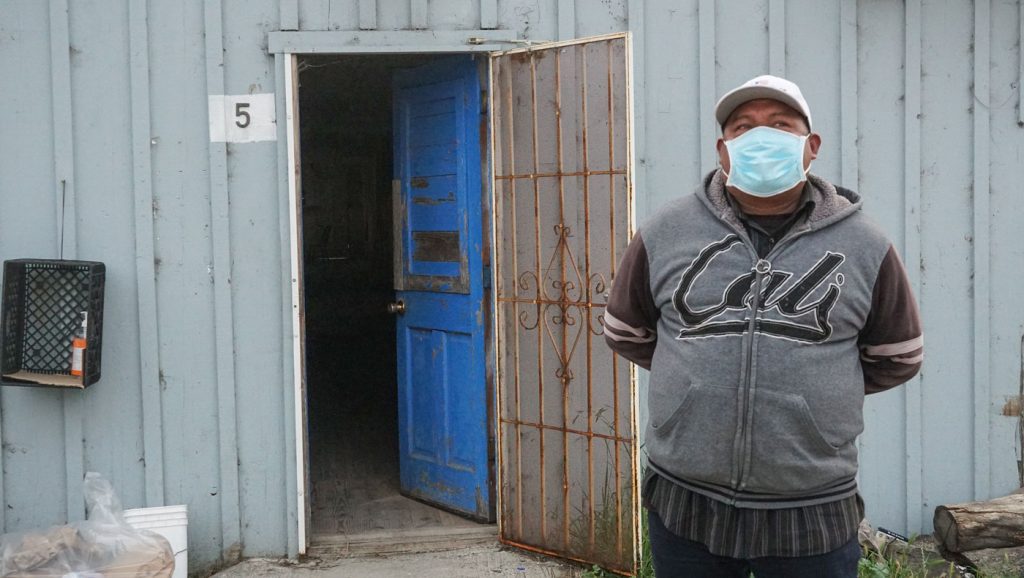
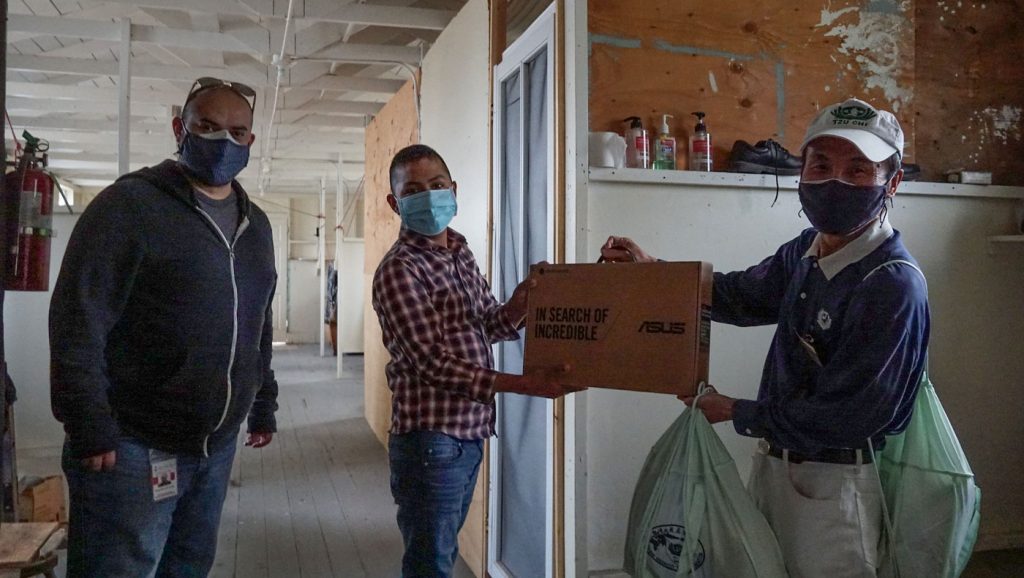
While some of their worries persist, the new computer is a definite cause of happiness for this hard-working father and son. Luis is now better equipped to pursue his education, with all its associated opportunities to benefit the whole family.
A Window of Opportunity for Migrant Families
Besides being of direct help to their children in their studies, the free laptops from Tzu Chi USA will also help migrant farmworker families in other ways.
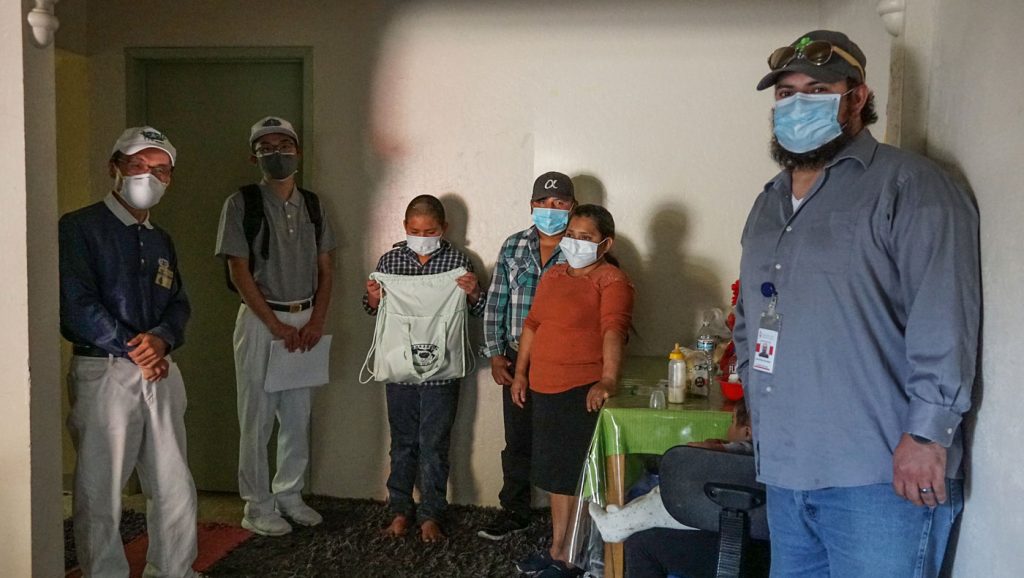
Israel Rivera Alvarado, a social worker and Migrant Education Program (MEP) Advocate at Santa Clara County Office of Education, assisted Tzu Chi volunteers in the distribution. He explained that most migrant families don’t know about available resources or can’t apply to obtain them. The computers provided are a tremendous asset for these underprivileged families, and the encouragement from Tzu Chi volunteers will also benefit them in a myriad of ways.
Tzu Chi’s donations of the computer have made a difference in the families, no matter how much difference it carries, Tzu Chi’s positive energy has encouraged these migrant families.
Israel Rivera Alvarado, Social Worker & MEP Program Advocate Santa Clara County Office of Education
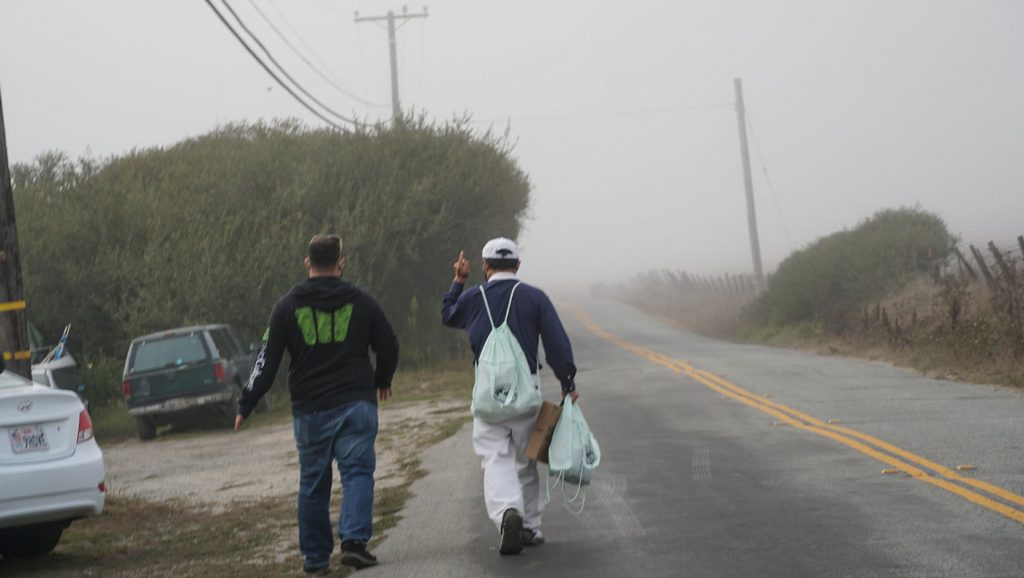
As the mission drew to a close, Christopher Yang reflected on the experience, deeply moved and inspired after visiting the migrant families they had served. He acknowledged that because most of the adults in these families don’t speak English well, they have a difficult life with limited possibilities. However, their children have a better chance of advancement, and their learning abilities are evident. They just need opportunities and tools to explore and learn:
Giving [the students] a computer as a tool to strengthen their knowledge, that's powerful.
Christopher Yang, Tzu Chi Volunteer
By delivering computers to remote areas where many migrant farmworker families can’t afford them, Tzu Chi USA opened a window of opportunity for both students and their parents to spread their wings digitally and access a world full of possibilities. Through your love, you can support missions such as these. Everyone deserves a fair chance in life, and you can help offer it by backing our charity aid missions.
Look at life’s suffering as an opportunity to inspire ourselves with the compassion of a Bodhisattva, and to set good examples for others to follow
Jing Si Aphorism by Master Cheng Yen

